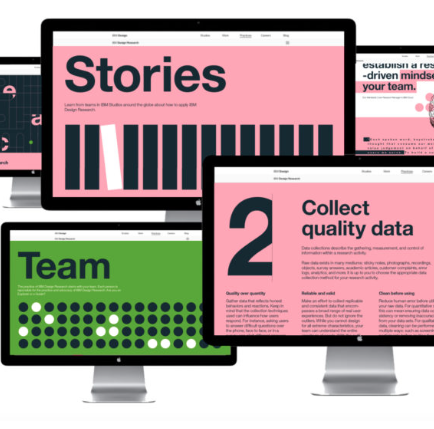This essay offers an analysis of the “pain point,” a commonplace figure of speech in UX design and contemporary business contexts more broadly. By situating this everday trope within a wider discourse of pain, and its politiciztion in the United States, I seek to problematize the modes of...
Tag: user experience

The Enterprise, On the Go: Exploring Mobile Work Practices at IBM
From conference rooms to conference calls, from our homey desk at the office to a hotel room across the world, people are working “on the go” in various ways. Mobile devices make many of these forms of mobile work possible. From the early days of the personal laptop, to the revolutionary...

Tracing the Arc of Ethnographic Impact: Success and (In)visibility of Our Work and Identities
This paper explores ways in which ethnographic impact in a large technology corporation is perceived, re-defined, and recognized – by both practitioners themselves and corporate stakeholders. The authors trace a history of ethnographic successes and stumbles, and ways they have confronted a strong...

The Cackle of Communities and the Managed Muteness of Market
Researchers at EPIC face something of a trap. Situated in an ethos of twenty first century consumer capitalism, our professional duties overemphasize individual consumers, and the products of our research always diverge towards our respective corporations’ interests. As a result we have little...

In Praise of Theory in Design Research: How Levi-Strauss Redefined Workflow
In his 2015 novel, Satin Island, Tom McCarthy’s protagonist (known only as “U”) is a corporate anthropologist working for an outre design research firm whose work embodies all the absurd contradictions of late capitalism. The highly influential firm’s logo is “a giant, crumbling tower.” The...

Understanding Users: The Extensions of Expectant Systems
This paper provides an ethnographic understanding of users in the Persian blogosphere through the framework of the carnivalesque. The repertoire of concepts provided by the carnivalesque draws attention to (1) the significance of the material, (2) the dynamic, transforming nature of things, and...

Scaling Empathy through IBM Design Research
As consultants we practiced the basics of design thinking and user centered design for years with a range of organizations. However, upon joining IBM and learning to apply the IBM Design Thinking mindset, we both realized this way of working differed from our past experiences. This difference is...

Elizabeth F. Churchill / A Profile
EPIC Profiles Series At 7 am sharp on a Monday morning, Skype broke the silence with an incoming call. On the line was an affable, well-spoken woman with a British accent. It was Elizabeth Churchill, a familiar name in the EPIC community and a founding member of its steering committee. It was a...

Sustaining Stories: The Versatile Life of Sustained, In-house, Ethnographic Practice in a Global Software Company
Ethnographers, in a sense, play the role of story creators, storytellers, and, often, preservers of such stories. The narratives produced and the fieldwork from which they emerge make visible trajectories of practice—for both subjects and researchers— which can be traced both...

(In)visible partners: People, Algorithms, and Business Models in Online Dating
A confluence of personal, technical and business factors renders priorities, practices, and desires visible – and invisible – when people use online dating sites to look for partners. Based on a review of websites, interviews with dating site designer/developers, and interviews with would-be...
